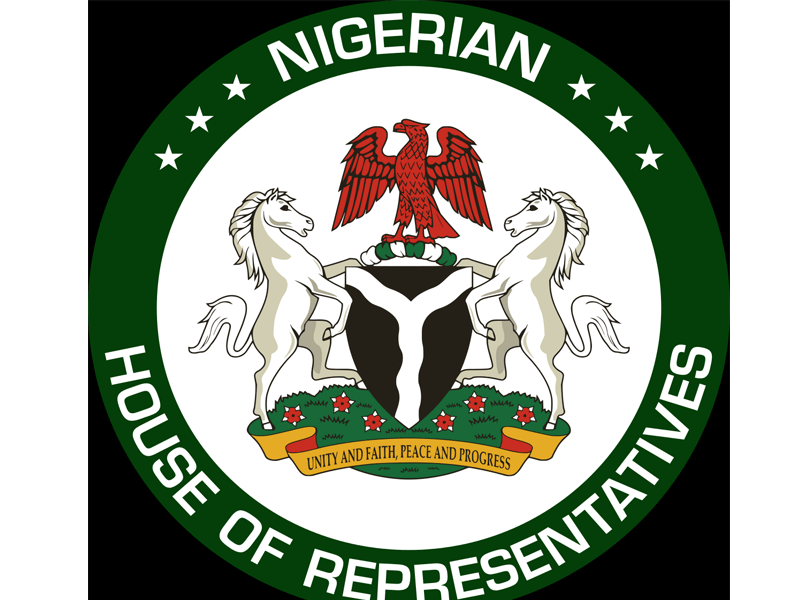Latest Headlines
Like Senate, House Passes Independent Candidacy Bill, Transmits to Buhari for Assent

•Urges Jigawa, four other Houses of Assembly to forward resolutions on bills
•Urges tertiary institutions to integrate Nigerian students returned from Sudan
•Opposes motion seeking to stop UK from banning Nigerian emigrants from emigrating with their families
Udora Orizu in Abuja
In concurrence with the Senate, the House of Representatives, at plenary yesterday, passed a bill seeking to provide for independent candidacy in presidential, governorship, national and state assembly, as well as local government elections.
The lawmakers subsequently asked the Clerk of the National Assembly to transmit the bill to President Muhammadu Buhari for assent in line with the provisions of the Authentication Act.
The proposed legislation on independent candidacy was the constitution alteration bill No. 58.
The green chamber urged the Jigawa, Kebbi, Kwara, Plateau, and Taraba states Houses of Assembly that were yet to forward their resolutions on the bills, to do so in fulfilment of their constitutional legislative obligations to the constitution amendment process.
The House also urged the federal government to direct all tertiary institutions in Nigeria to accept students affected by the Sudan crisis to continue with their educational programmes.
However, the lawmakers rejected a motion sponsored by Hon. Taiwo Oluga, seeking to urge the United Kingdom to desist from banning Nigerian student emigrants from relocating with their families.
The resolution on independent candidacy followed the adoption of a motion sponsored by Deputy Speaker, Hon. Idris Wase, Minority Leader, Hon. Ndudi Elumelu, Hon. Babajimi Benson, and 76 other lawmakers.
In the motion, the sponsors said, “Recall that on Wednesday, May 3, 2023, the Clerk to the National Assembly was directed to transmit the Constitution, 1999 (Fifth Alteration) Bill No. 47 that has met the requirement of Section 9(2) of the Constitution to the President for assent.
“Also recall that the Houses of Assembly of Gombe, Jigawa, Kebbi, Kwara, Plateau and Taraba states that were yet to forward their resolutions were urged to do so in compliance with constitutional obligation.
“Aware that the Gombe State House of Assembly has accordingly forwarded its resolution. Convinced that with the approval of Gombe State House of Assembly, the Constitution, 1999 (Fifth Alteration) Bill Nos. 46 (Membership of the National Security Council to include Presiding Officers of the National Assembly), 2023 and 58 (Independent Candidacy), 2023 have met the provisions of Section 9(2) of the Constitution, for passage.”
Meanwhile, the House of Representatives urged the federal government to direct all tertiary institutions in Nigeria to accept students affected by the Sudan crisis to continue with their various educational programmes.
The resolution of the lawmakers followed the adoption of a motion of urgent national importance sponsored by Hon. Sada Soli, at plenary yesterday.
Moving the motion, Soli recalled that on April 15, crisis broke out in Sudan, resulting in the repatriation of students studying in various fields of learning in Sudan.
He expressed concerns that there was no end in sight to the crisis, which he said left the students in a state of confusion on the way forward with their various educational programmes.
He said there was need for swift intervention by the federal government through absorbing the students into tertiary institutions in the country in order to enable them continue with their various educational programmes.
Adopting the motion, the House mandated the Committee on Tertiary Education and Services to ensure compliance and report back within one week for further legislative action.
However, the lawmakers rejected a motion sponsored by Oluga, seeking to urge the United Kingdom to desist from banning Nigerian student emigrants from relocating with their families.
Oluga had while moving the motion noted that the Federal Republic of Nigeria had had a long history with the United Kingdom, which had been mutually beneficial to both countries, starting from the colonisation of Nigeria in the 19th century, granting of independence to Nigeria in 1960, and post-independence bilateral relationship between Nigeria and the United Kingdom.
She noted that the educational system in Nigeria, like many other aspects of the country, was fashioned after that of the United Kingdom.
This, she said, had led many Nigerians to seek employment as well as educational opportunities in the United Kingdom.
Oluga said, “Aware that recently, the United Kingdom Migration Policy allowed Nigerians admitted to United Kingdom universities to undergo Master’s Degree Programme to relocate/emigrate to allowing the Student Applicant (Primary Applicant) to the Kingdom with their family thereby relocate with his spouse (dependant) and children, whereupon the spouse/dependant is unable to work and earn a living supporting the family and paying tuition of the Nigerian Emigrant Family.”
She pointed out that the tuition for a Master’s degree programme was about 13,000 Pounds with an average number of 60,000 Nigerian applicants per year from Nigeria.
Oluga drew the attention of her colleagues to the fact that Nigeria and Britain had a mutually beneficial relationship.
However, when put to a voice vote by Speaker of the House, Hon. Femi Gbajabiamila, who presided over the plenary session, majority of lawmakers shouted ‘nay.’”










